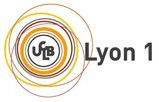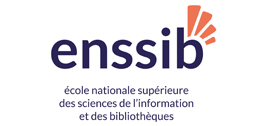Cancer epidemiology in the era of big data
| Quand ? |
Le 08/03/2018, de 14:00 à 15:00 |
|---|---|
| Où ? | EM lyon - Data R&D Institute, building A, Amphi 3 |
| Ajouter un événement au calendrier |
|
Speaker Prof. Vivian Viallon, from University Lyon 1 and the International Agency for Research on Cancer, will be talking about applications of big data in breast cancer research.
Abstract: In this presentation, I will first recall what (cancer) epidemiology is, and why it is so intimately related to statistics. Then, I will present historical epidemiological results which have suggested the role of environmental exposures in the development of cancer. I will further explain how the availability of more and more complex data (genomics, proteomics, metabolomics, epigenetics, microbiomics, but also « medico-administrative data ») opens the hope to better understand biological pathways leading to cancer, but also creates increasingly more complex challenges regarding statistical analyses. I will address the concept of causality and show how genetic data can be used to assess the causal interpretation of observed associations. I will also mention penalized estimation, and more particularly the use of structured sparsity-inducing norms to identify metabolic signatures specific to subtypes of breast cancer.
Bio: Prof. Viallon received his PhD in mathematical statistics in 2006 from University Paris 6, under the supervision of Prof. Paul Deheuvels (a world leading statistician, member of the French Academy of Science). Prof. Viallon held positions as an assistant professor at the Biostatistic department of Hopital Cochin/Univ. Paris Descartes, then as a visiting scholar at the EECS department of UC Berkeley, and then as an associate professor of statistics at University Lyon 1. He is currently "on leave" and has joined the Nutritional Methodology and Biostatistics group at IARC (International Agency for Research on Cancer), WHO, Lyon. Motivated by applications in (cancer) epidemiology his research is mostly focused on penalized approaches for high-dimensional data and causal inference. Applications in (cancer) epidemiology have motivated most of his methodological and theoretical works.










